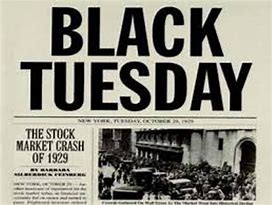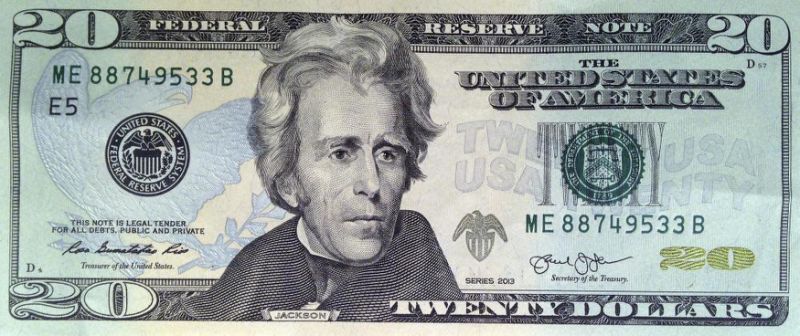The worshipping of whiteness': why racist symbols persist in America







The worshipping of whiteness': why racist symbols persist in America
In life, the seventh US president, Andrew Jackson, and his family accrued their wealth at the expense of hundreds of enslaved people. Now, even in death, Jackson still wields the power to haunt Black Americans whenever they pull a $20 bill from their wallets.
In life, the seventh US president, Andrew Jackson, and his family accrued their wealth at the expense of hundreds of enslaved people. Now, even in death, Jackson still wields the power to haunt Black Americans whenever they pull a $20 bill from their wallets.
“Racism isn’t always abrupt. It isn’t always in your face. Sometimes, it’s very insidious,” said Franklin Eugene Forbes II, an architect and urban planner. “Why am I, a Black person, using a bill where a man who believed I was inferior to somebody else as a way to buy things, the same way people that look like me were bought by him?”
For weeks now, historic protests against systemic racial inequity and injustice have also reinvigorated passionate debate around the most obvious memorials to slavery, white supremacy and racism across the United States. A growing number of the nearly 800 Confederate statues and monuments in the US have been removed, alongside a few toppled or defaced homages to founding fathers who profited from slavery.
Brands such as Aunt Jemima, Uncle Ben’s and Cream of Wheat are reconsidering the racial stereotypes emblazoned on their packaging. Gone With the Wind was temporarily pulled from HBO Max, and Nascar devotees no longer have the green light to unfurl Confederate battle flags at races.

But plenty of other symbols persist.
Abolitionist Harriet Tubman was supposed to supplant Jackson on the $20 bill. Then came the Trump administration.Abolitionist Harriet Tubman was supposed to supplant Jackson on the $20 bill. Then came the Trump administration.
The redesigned bill with Tubman’s portrait was originally expected to debut in 2020. But last year, the treasury secretary, Steve Mnuchin, announced that the unveiling had been delayed. He has since said the new version won’t be released for another decade and may not even feature Tubman.
“Maybe every single time you pay for something, you’re not thinking, ‘oh goodie, there’s Andrew Jackson, my hero.’ But in a way, that’s kind of the point, right?” said Alvita Akiboh, an assistant professor of history at the University of Michigan.
When Akiboh taught in Chicago, her students assumed that the local park in a majority Black and Latino neighborhood was named for Frederick Douglass, the famed abolitionist. It was instead a salute to Stephen A Douglas, an Illinois senator whose political machinations enabled slavery, and who is quoted saying: “I am in favor of confining citizenship to white men.”

Similar tributes to a checkered past exist all over the US, from streets named for Confederate officers and slave traders to congested highways originally designed to reinforce segregation and eliminate Black neighborhoods.
When sports fans attend baseball or football games, they turn to the American flag and sing a national anthem penned by Francis Scott Key, a slave owner who abused his authority as district attorney to persecute Black men and abolitionists.
“I hope at least that the questioning that has started with monuments, because they’re visible, because they’re large, and because they’re easy to remove, will continue to happen as we start to re-evaluate the symbols on money, on our stamps,” Akiboh said.
“The flags and other symbols that we use. The songs that we sing for our patriotic anthems. And that definitely, we will get to re-evaluate our K-12 curriculum.”The attorney general, William Barr, recently came under fire when he casually quipped that “history is written by the winners”. For centuries, white Americans have always had the position and privilege to shape the country’s historical record.
Reference: The Guardian•30 June 2020: Alexandra Villarreal in New York
Articles-Popular
- Main
- Contact Us
- Planetary Existences-2
- Planetary Existences
- TWO REVELATIONS-2
- Jeffery Epstein - The Saga - 9
- Jeffery Epstein - The Saga - 8
- Jeffery Epstein - The Saga - 10
- The Two Revelations
- The Fourth Way - Study of Oneself - P.D.Ouspensky
- Impeachment Investigators Subpoena White House - Ukraine
- Universality of Initiation
- The Path Of Initiation
- Initiation and the Devas
- The Participants In The Mysteries-2
- The Fourth Way - Wrong Functions - P.D Ouspensky
- The Final Initiation
- Statues are a mark of honour. Like Edward Colston, Cecil Rhodes and Oliver Cromwell have to go
- Discipleship - Group Relations - 2
- The Probationary Path - 2
- The Participants In The Mysteries
- Discipleship - Group Relationships
- Discipleship
- The Succeeding Two Initiations
- Jeffery Epstein - The Saga - 7
- Jeffery Epstein - The Saga - 6
Articles - Latest
- They Lied to Us! The Truth They Hid About Hitler’s Death — Gerard Williams
- Ramaposa Dragged Out of Parliament
- Madagascar Goverment Collapse
- The Reality of Digital Id
- Welcome To The End Of Western Dominance
- Why is the Sahel turning its back on France?
- Sarkozy gets 5 years in prison in Gadhafi case
- The EU in 2025: A union at the crossroads of chaos
- Deep distrust of EU leaves Italy's Meloni in a corner over bailout fund
- Regime crisis in France: Bayrou falls, now Macron must go!
- Idi Amin president of Uganda
- Anger at Starmer's 'surrender deal' that hands Spain control over Gibraltar border
- Iran doubles down as US signals Israel could strike during nuclear talks
- What could have caused Air India plane to crash in 30 seconds?
- WW3 fears explode as Britain now Russia's 'enemy number 1' - even ahead of Ukraine





